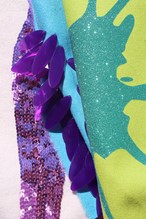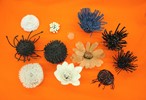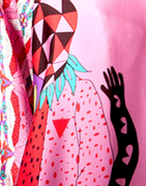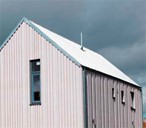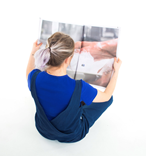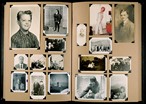A one-year taught postgraduate programme based in the School of Fine Art. The programme offers full or part-time study, with a masters award gained after 12 months/24 months of study.
The MLitt Art Writing is based on two principal elements: a unique understanding of art writing as an interdisciplinary studio practice and the opportunity to bring new work to a public audience or readership through project-based partnerships with external organisations or bodies. With emphasis on reflexive and critical practice-based enquiry, the programme reflects the increasing interest in the development of alternative forms of critical and theoretical writing and the reconfiguring of the relationship between writing and artistic practice.
The practice and study of art writing involves creative, philosophical, critical and theoretical approaches to writing about, writing with, and writing as art. Drawing from disciplines including visual art, art criticism, art history and literature, this interdisciplinary field is as much about creative production as it is concerned with critical discourse. Students are encouraged to consider art writing as emergent field and to examine its cultural and literary forms, histories, content and contexts. Encouraging self-directed exploration and practice, and supported by peers and access to the wider creative community of Glasgow, students will focus on the development and dissemination of their own expansive, innovative and impactful modes of creative critical writing, reading, editorial and research practices. Students are expected to write effectively from a position of curiosity, knowledge and purpose and to publish and present within the expanded field of art criticism and interdisciplinary writing.
Key to the programme is the Writing Studio. The MLitt Art Writing cohort are accommodated alongside other SoFA postgraduate students, allowing for discourse between students and fostering critical reflection and experimentation. Questioning the ‘studio’ as both a physical and pedagogical space and as it pertains to writing and practice-led methodologies, the writing studio is a flexible space that accommodates a number of core writing practices: writing; reading; editing; dialogue between writers, presentation/performance/readings and peer reviewing. The writing studio also accommodates a learning and teaching model that is distinctive to studio-based teaching, namely one rooted in experimentation, where students are encouraged to take risks and to reflect upon progress, and supported by group critiques, writing workshops, individual tutorials and seminars, all taking place within the making/writing space.
The programme offers a series of research and practice visits, professional practice workshops and masterclasses, and a series of visiting lectures from leading experts in the field. Student-initiated project-based partnerships are supported by the Programme team. Students have the opportunity to work with local specialists and organisations in order to test and develop their practice in an external environment and bring new work to a public audience or readership. Engagement and participation in local cultural activity is seen as crucial to both individual student development, the ethos of the Art Writing programme and the city at large.
Students are expected to present final project work as part of the GSA and Programme specific postgraduate showcase events.
Publication and Exhibition
Engagement and participation in local cultural activity is seen as crucial to both individual student development and the ethos of the Art Writing programme. Students are expected to engage in critical exchange and bring their work to a public audience or readership throughout Stages 2 and 3 of the Programme. This is facilitated by partnerships with external organisations and close links to city-wide programming and activity. In Stage 2 students are supported to work with external organisations or bodies to test and develop work in a public forum. In Stage 3 students publish and/or exhibit work as part of the GSA and Programme specific postgraduate showcase events.
The Yellow Paper: Journal for Art Writing is a programme-led imprint edited by Laura Haynes, publishing new writing online and annually in print.
Soft Shell is an open-mic, performance and broadcasting project ran in partnership with the Creative Writing department at University of Glasgow.
Entry Requirements
A good undergraduate Degree (normally 2:1 or higher) in a relevant subject area (e.g. Contemporary Art Practice/Theory, Art History, Creative Writing, Literature, Critical Studies, Museum and Curatorial Studies) or equivalent professional practice.
Candidates will submit a 500-word programme of study proposal in addition to a portfolio of writing practice (candidate portfolios may include, but are not limited to, creative/critical writing [including non-published, independently accredited or self-published work], moving image work, painting, performance, event/install documentation and sound-based work). The portfolio may provide links to websites or blogs should this be appropriate.
IELTS Score Required on Entry: Academic IELTS 6.5 (minimum 6.0 in each component)




